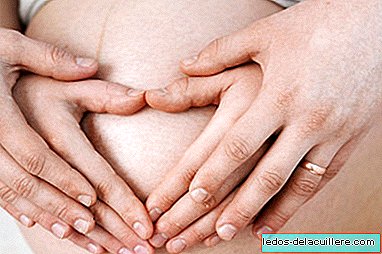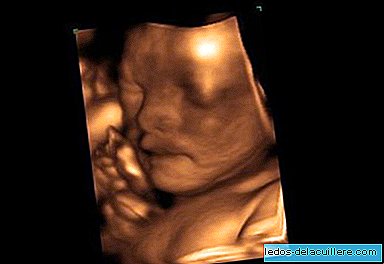
When the birth occurs before the 37th week of gestation it is considered premature delivery. Being born too early can have negative consequences for the baby, depending on the degree of prematurity, so it is important Know how to recognize the warning signs of preterm birth.
Approximately ten percent of women experience signs of premature delivery at some point in pregnancy, however in many cases it is possible to stop the symptoms of childbirth and finally the birth occurs at term.
Recognizing alarm signals is very important for the early detection of this increasingly common complication. In this way, it is more feasible to act in time for the baby to continue developing in the womb until he is ready to be born.
Symptoms and warning signs of premature delivery
Increase in the frequency of contractions: regular contractions every 15 minutes or less, lasting 20 seconds to 2 minutes each between week 21 and 37 of gestation.
Vaginal bleeding: a metrorrhagia (vaginal bleeding from the uterus not associated with the menstrual cycle) in the second or third trimester may be the precedent for premature delivery.
Mucous plug expulsion: Although it is not a sign of imminent delivery, the expulsion of the mucous plug is a sign that the cervix begins to dilate. The appearance of the mucous plug is that of a mucous, viscous and thick flow.
Shortening and eradication of the cervix: This is something that can only be verified by the doctor, but sometimes the cervix dilates prematurely without pain. It may be a sign of incompetent cervix.
Increase and change of vaginal fluid: vaginal discharge that may vary in color and consistency. It can be transparent with a mucous appearance (mucous plug) or turn pink or brown.
Amniotic bag rupture: The rupture of membranes is an unequivocal sign that childbirth will occur in the next few hours. Although it may not be imminent, it is not usually expected more than 24 hours for fear of infection.
Abdominal cramps or cramps for more than an hour (with or without diarrhea)
Intense pressure in the pelvis, hips and inner thighs: you may have the feeling that the baby was about to be expelled.
Continuous lower back pain
Sensation of restlessness and restlessness
It can exist increased body temperature and chills
What to do before the symptoms of premature delivery
If there are regular contractions, lie on your side on the left side. If the contractions still don't stop within an hour, you should see a doctor.
Stay hydrated: drinking 2 to 3 glasses of water increases the volume of blood in the body, on the contrary, dehydration decreases the volume of blood and increases the concentration of oxytocin, the hormone responsible for uterine contractions.
See if there is fluid leakage through the vagina, either transparent (it can be a fissure in the bag) or bloody (it could be the mucous plug). If there is, the pregnant woman must be transferred to the hospital.
In the hospital, the doctor will assess the condition of the baby and as much as possible medication to stop labor, called tocolytics. In some cases, the pregnant woman can go home once the contractions have stopped, while others must remain in the hospital, depending on the dilation of the cervix and the progress of pregnancy.
Regular prenatal medical check-ups decrease the chances of preterm birth, so it is essential that you go to all appointments from the beginning of pregnancy.
Still, many pregnant women experience signs of preterm birth at some time during pregnancy. Knowing how to identify them in time is very important to try, as far as possible, to prevent a preterm birth.












